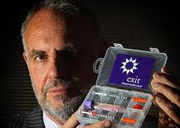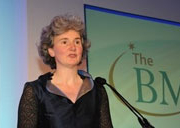‘Dying with Dignity’ Bill defeated in Ireland
 The Joint Committee on Justice in Ireland has put a halt to the Dying with Dignity Bill proposed by Deputy Gino Kelly. They have recommended that an Oireachtas Special Committee be established to examine the whole area of assisted dying.
The Joint Committee on Justice in Ireland has put a halt to the Dying with Dignity Bill proposed by Deputy Gino Kelly. They have recommended that an Oireachtas Special Committee be established to examine the whole area of assisted dying.
A public consultation on the bill was held at the end of 2020, which received over 1,400 responses. Sixty-four of these were from individuals writing from a medical basis, and 36 were from ‘medical stakeholders focusing on mental health issues and palliative care’. The Joint Committee’s report notes that the majority of the submissions in both these categories were opposed to the bill.
Issues raised in these submissions included:
- that introducing legislation on assisted suicide could significantly harm the patient-doctor relationship and could undermine the trust between the public and the medical profession.
- evidence of ‘policy creep’ in most other jurisdictions, where the ‘robust safeguards’ for who can access assisted suicide and in what circumstances are quickly eroded.
- the difficulty of accurately predicting the life expectancy of those with terminal diseases.
- the lack of a requirement for a psychiatric assessment of patients requesting assisted suicide.
- the concern that ‘assisted dying could be seen as a more ‘cost-effective’ approach to addressing the needs of those facing end-of-life illnesses’; and
- the fact that the title of the bill ‘undermines the work of palliative organisations by implying that assisted dying is the better or the only way to have dignity when dying.’
Elsewhere, the report notes that: ‘A point that was repeated frequently throughout submissions in all categories was concern that this Bill could result in abuse of the sick and vulnerable, who may perceive themselves to be a burden on their family and feel pressured into opting for assisted dying.’
Furthermore, ‘In some submissions, elderly people expressed their personal dismay, as they felt that after working hard all of their lives, the prospect of this Bill being passed made them feel as if society was demonstrating that they were of little value.’
In conclusion, the report states that the Joint Committee determined:
[T]hat the Bill has serious technical issues in several sections, that it may have unintended policy consequences (particularly regarding the lack of sufficient safeguards to protect against undue pressure being put on vulnerable people to avail of assisted dying), that the drafting of several sections of the Bill contain serious flaws that could potentially render them vulnerable to challenge before the courts, and that the gravity of such a topic as assisted dying warrants a more thorough examination.
This is excellent news, and we praise God for it and thank all who prayed about this issue and made submissions to the consultation.
One line that stands out in the report comes on page eight, in the outline of the submitted responses. One of the main arguments in favour of introducing the bill was that ‘the option of assisted dying provides ‘emotional insurance’ to patients, taking away the fear and anxiety they are experiencing and allowing them a better quality of living during their final months.’ Professor Katherine Sleeman raised this point in her presentation to a recent meeting of the All Party Parliamentary Group on Dying Well. However, she said, the answer to removing fear and anxiety is not to introduce killing but to improve communication and the provision of outstanding palliative care. She said, ‘I am deeply concerned that our societal conversation is being driven by hyperbole and fear not by evidence and information and it’s wrong and dangerous to frame this as a choice between suffering and suicide.’
We wholeheartedly agree.
If you have any experience in this area – as a professional, a patient or a relative, we would love to hear your stories of how what seemed hopeless and terrifying was transformed into hope and peace. The stories of suffering are stark and compelling, but we know there are better stories to be told!
Please help us to share them if you can do so without violating confidentiality.
We are delighted at this victory and praise God for it. Please pray that he will move similarly in Westminster, Holyrood, Jersey, and other places around the world that are looking to introduce similar legislation. And sign up for the CMF Public Policy e-newsletter to stay informed about these issues, and receive notifications when similar consultations are live.










Leave a Reply
Want to join the discussion?Feel free to contribute!